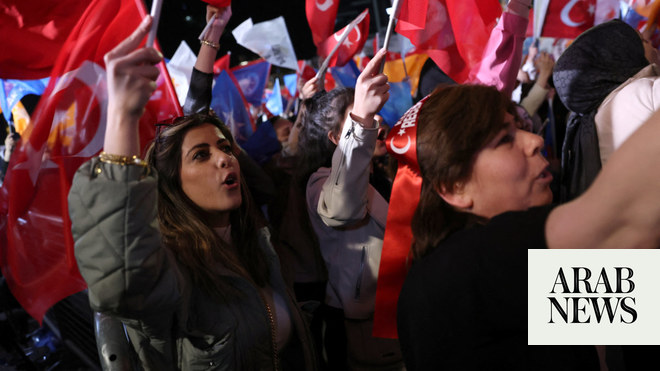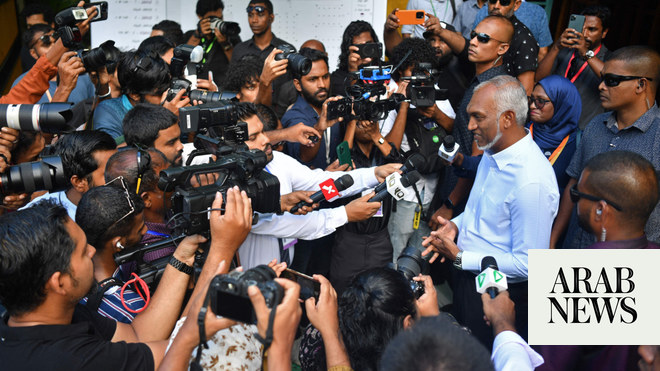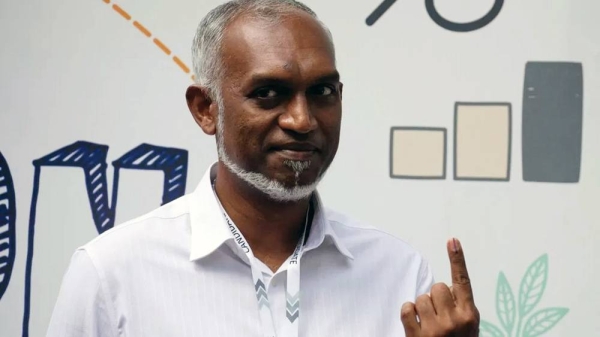
Polls opened in the Pacific country of Kiribati on Wednesday, after an election campaign dominated by the cost of living, rising sea levels and questions about the benefit of deeper ties with China.
A nation of 115,000 residents, Kiribati is considered strategic despite being small, because it is relatively close to Hawaii and controls more than 3.5 million sq km (1.4m sq miles) of Pacific Ocean.
Incumbent 63-year-old president Taneti Maamau is seeking to extend his almost-decade-long tenure.
Since coming to power, Maamau has drawn Kiribati ever closer to Beijing, switching ties from Taiwan to Beijing in 2019.
Ahead of election day, China’s ambassador Zhou Limin offered a warm embrace of Maamau’s government, and its “historic achievements in various areas”.
“In the past year, I have observed an increase in the number of cars on the roads, a wider range of goods in supermarkets, and new entertainment equipment at playgrounds, which are strong proof of the improvement of Kiribati people’s life quality,” he wrote.
In February, Reuters reported that Chinese police had begun working in Kiribati, a sensitive issue for neighbouring US, which signed a 1983 treaty providing for consultation before Kiribati allows third-party military use of its islands.
China’s police force donated riot control gear in July, pledging to “solidify collaboration in law enforcement and policing”, the Kiribati police said in a statement on Facebook.
A US request to establish an embassy has meanwhile stalled.
Some western analysts allege that Chinese activities in Kiribati – from police deployments, to developing a runway on Kanton Island, to extensive marine mapping – are a pretext for establishing a bigger security footprint.
Graeme Smith of the Australian National University said sending police to Kiribati offers Beijing “another intelligence channel into what is happening in the country … another line of reporting in addition to their diplomats.”
Despite China’s largesse, a significant drop in foreign aid – along with a massive pay rise for government workers – means Kiribati’s fiscal deficit is expected to jump to 9.7% of GDP this year, according to Asian Development Bank forecasts.
External debt is forecast to balloon by almost 400% in the coming years, reaching 35% of GDP by 2029.
Inflation-hit voters may decide the time has come for a change in approach.
“If Maamau doesn’t get back in and the opposition faction does, that could completely change the direction in Kiribati,” Jon Fraenkel, a political science professor at Wellington’s Victoria University, told AFP.
Kiribati’s loose political groupings are typical of several Pacific Island nations, where many candidates run as individuals and voters directly elect the president later, from a shortlist chosen by the new lawmakers.
There are 115 candidates contesting for 44 parliamentary seats – 97 males and 18 females. The 45th seat is nominated by the Banaban community, a majority of who live on the island of Rabi in Fiji, according to RNZ.
The general election has up to two rounds of voting, and the process can stretch on for months. Citizens then separately elect a president from a pool of candidates put forward by lawmakers – “that will be what will really decide the future,” Fraenkel added.
Low-lying Kiribati faces a raft of economic and environmental challenges, such as rising sea levels that regularly taint scarce supplies of drinking water.
With outer atolls already under threat from coastal erosion, Tarawa has become one of the world’s most densely populated places.
Encroaching sea waters and the search for higher ground means the capital today has a population density comparable with Tokyo.
Residents are plagued by contagious diseases and other symptoms of overcrowding.












